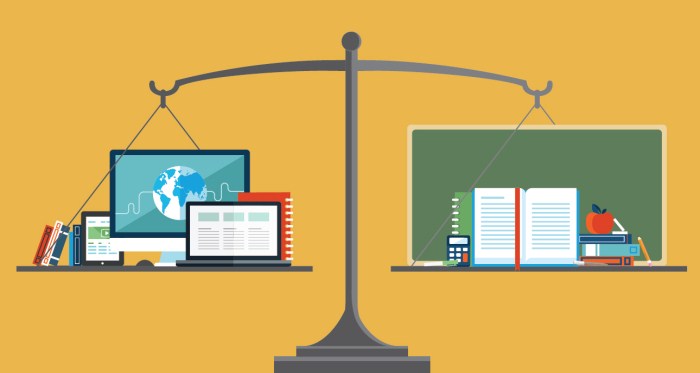Dr Rashpal Singh
Education means all round development of mind, soul and body. By means of education a human being becomes a knowledgeable person who can differentiate between right and wrong. From many years, education in both ways formal and informal is followed by mankind across the Universe. Even ancient man was educated and he discovered Fire and Operations of Wheels in Stone age and 4th Millennium respectively. Centuries changed over the period of time. Then Vedic System of education came into existence in c- 1500 to c- 500 BCE in late Bronze age and early Iron age. The Vedas brought biggest impact on Indian History of Education. Main aim of Vedic Education was to attain salvation through education. Vedic Education helped in observance in celibacy, control over senses and purity of life. Vedic Education System had followed Simple Living and High Thinking but modern System is reverse of it. Passed over the centuries system of Vedic Education transformed into modern System of Education in which American Educator Horace Mann (1796-1859) brought Unified School System with varied curriculum. In our country after Independence First Commission of Education was set up in the year 1948 know as University Education Commission by Dr Radhakrishnan which laid emphasis over that all the Educational Institutions will start their work with two minutes of silence prayers. Commission advocated for more professional courses like agriculture, commerce, engineering and law. The Study of Agriculture in Primary, Secondary and Higher level will boost the Economy of the Country. Then 1964-68 Khotari Commission was set up by Smt Indra Gandhi aiming over radical restructuring and provision of equal opportunities for all. Education Policy of 1968 Promoted Compulsory Education upto the age of 14. Thereafter again a Policy of Education in the year 1986 came and it’s main aim was to remove disparity between various social groups. As suggested by Kothari commission uniform system of 10+2+3 was implemented Nation wide. NPE 1986 also emphasized over the opening of National level Institutions like UGC, NCERT, NIEPA, AICTE, ICAR, IMC etc. which would help the country in shaping up youth. The scheme of Navodaya Vidyalayas and Free Education for Girls Child was the highlights of the Policy. Again this Policy was reviewed in the year of 1992 in which a common minimum Programme was executed for taking admission in Professional and Technical Institutes and would be done through All India level Enterance Tests. Computer Education was also a great highlight of 1986-92 policy across the country. After a span of 34 Years NDA Government led by Narendra Modi brought a New Education Policy 2020 in the entire country. NEP 2020 promotes local language teachings upto Class 5 and choice of Vocational Education from Class 6th. Old Structure of 10+2+3 was replaced with 5+3+3+4. Base of Pre Primary and Primary Education has been elevated for building strong payramids over it. Education Budget was enhanced to 6 percent of GDP by Union Government. On 31st December 2019 first case of COVID -19 was traced from Wuhan China and this dreadful virus spread across the globe like fire in forest. In India Virus of COVID -19 was traced from Kerala on January 27, 2020 and the same happened in the other countries. Fearing spread of Covid, Government of India imposed countrywide lockdown. While Covid hit other sectors, it also affected education.
Ministry of Education Government of India initiated the Process of E- Content via DIKSHA learning App. NCERT New Delhi played a key role in the development of e Content while taking the services of SCERTs and DIETs accross the country. Students from Class 1st to 12th Classes were benefitted. Teachers across the country have used various online Platforms for reaching out to their respective students via WhatsApp, Zoom app, Google Meet, Webex etc. Many constraints were seen in the online education for want of digital devices with proper internet facility due to economic conditions. It’s true that various online Platforms like TV Channels and Radio lessons were telecast by Doordarshan and Parsar Bharti in collaboration with NCERT New Delhi and SCERTs. But all these efforts might have brought visible changes but Traditional Education System has it’s own strong value. No system can change the place of a teacher in a classroom. Although Online may be good system to education but at the same time students are spending much time over the Digital Devices and skills of reading and writing came down which might be a great concern of Digitization. There are number of benefits of Online Education but at the same time disadvantages have also been seen. Engagement and mood of the students can’t be judged by the Instructor online mode. During online classes it was found that students have felt isolated type of environment and lack of Time Management with many distractions. Physical distance between students and teachers was also biggest factor in online platform.
Social division remained the biggest challenge during online education. In Online System of Education students can’t be judged in extra curricular activities which is very important part of Traditional System of Education. Time Management is the biggest challenging factor in online Education. Prime Minister of India Narendra Modi during had valuable words on Pariksha Per Charcha held on 27/01/2023. While speaking on the occasion he said students face many problems due to mismanagement of time and thereafter a huge bunch of subjects come in the way and a bit confusion arises during the days of examinations. He also said students might learn time management from their mothers. Exactly it’s true that Online System of Education may be the alternative but not the replacement of Traditional System of Education as it develops behaviourism, cognitivism and Constructivism. Traditional System of Education promotes peer learning with child’s talent and Physical Skills which has been found absent in Online Education. Although Online Education across the country remained a great alternative of traditional system of Education during COVID period.
(The author is Sr Lecturer DIET Kud)
Trending Now
E-Paper


